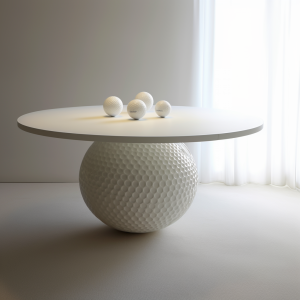
In a recent TED talk (https://www.youtube.com/watch?v=y8NtMZ7VGmU), Fei-Fei Li, a leading AI expert, discussed the exciting potential of spatial intelligence. This concept, which involves understanding and interacting with the 3D world, could revolutionize many technologies, including 3D printing. Here’s how spatial intelligence is potentially set to change the game for 3D printing.

What is Spatial Intelligence?
Spatial intelligence is the ability to understand and work within a three-dimensional space. In the context of AI, this means not just seeing, but also acting and learning in a 3D environment. This capability is crucial for creating smarter, more interactive machines.

How Spatial Intelligence Potentially Enhances 3D Printing
- Enhanced Design Capabilities
Spatial intelligence helps AI generate optimized designs, considering various spatial constraints. This means more efficient use of materials and innovative design solutions that we might not have thought of since traditional 3D printing relies heavily on human input for creating models and structures. - Improved Accuracy
AI with spatial intelligence can monitor the 3D printing process in real-time, detecting and correcting errors as they happen. This leads to higher quality prints, less waste, and fewer post-processing steps. - Autonomous Printing
Combining spatial intelligence with 3D printing can lead to fully autonomous printing processes. AI can handle everything from design (Even a Simple Image as an Input!) to production, reducing labor costs and increasing productivity by running 24/7. - Customization
Spatial intelligence can also drive customization and personalization in 3D printing. By understanding the spatial dimensions and specific needs of individual users, AI can generate tailored products. This capability is particularly valuable in industries like interior design, where personalized furniture can significantly improve space utilization, especially in buildings with architectural limitation.

Looking Ahead
The combination of spatial intelligence and 3D printing is set to unlock new frontiers in manufacturing and design. As AI continues to evolve, its ability to reason and interact within 3D spaces will become increasingly sophisticated, leading to more advanced and capable 3D printing technologies. This synergy promises to not only enhance existing applications but also to spur the development of entirely new use cases and industries.
Conclusion
Spatial intelligence is a game-changer for 3D printing. By enabling machines to understand and interact with the 3D world, we can achieve unprecedented levels of precision, efficiency, and innovation. Embracing this potential will lead to a new era of technological advancement and creative possibilities.
Author: Daric Li , Co-Founder, Starz Origin
Credit to Fei-Fei Li for her enlightening TED talk on spatial intelligence.








